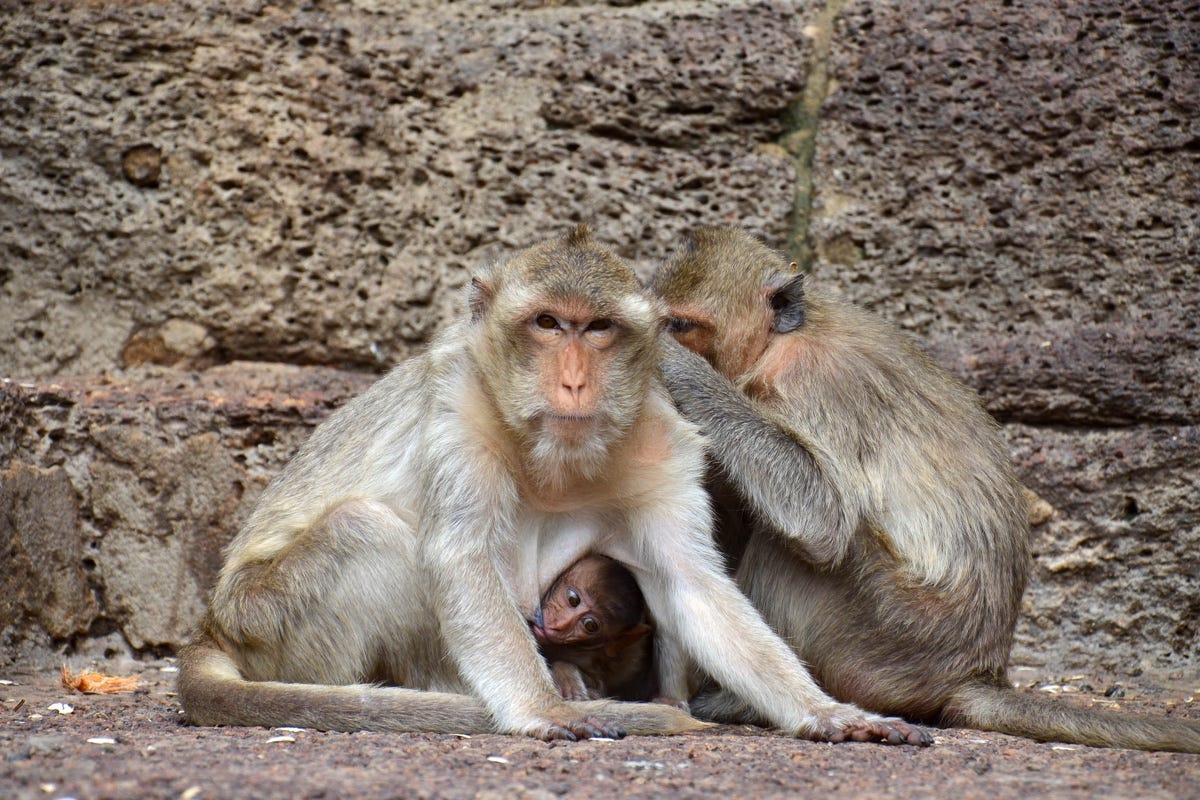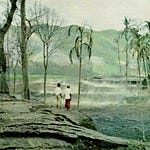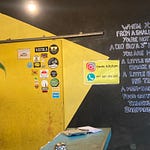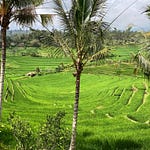When I reviewed The Last Tourist one bit that stood out was an inference that destinations are at risk of becoming “dumb pipes.” At one point, G Adventures founder Bruce Poon Tip says “Travel has taken a turn and the destination is no longer relevant.” When you pull that apart, what does it mean? What are the risks for destinations when the destination itself is no longer relevant?
When the Laotian Times reported that the southern hub of Pakse plans to introduce a “walking street night market,” Poon Tip’s words came to mind. A few days later, the same publication noted Savannakhet is to hold a monkey feeding festival. There’s nothing wrong with these initiatives I guess, but ...
Time to pack the bags for Savannakhet. Macaques at Lopburi, Thailand. Photo: David Luekens.
There’s a difference between what I’d term an organic walking street night market and one contrived for tourists. The former builds out of something that serves local people. It grows out of an existing night market that overflows, and examples exist across the region. In other cases, they evolve out of there being a heavy concentration of people. Bangkok’s Khao San Road—at least the old version—is an example of the latter.
The more contrived affair probably got its first shot in the arm in Chiang Mai. The city already had a “Night Bazaar,” but the night walking street, in the old city, brought more to the table. It was, and continues to be, a huge success. Luang Prabang replicated it, likewise with success, as did others. Today—or should I say tonight—some kind of a “night walking whatever” is a staple of the tourism diet.
Always check where this sorta stuff is made—you might be surprised at some of the answers. At Chiang Mai walking street. Photo: Mark Ord.
I’m not sure how often they play enough of a part in tourists’ hit-lists that such a thing brings on a longer stay, but looser wallets do result. This is a good thing—as long as you’re buying local fare and handicrafts—not cheap imported tat or a Starbucks.
And yet, taking Pakse as the example, there is far more on offer. It’s a hub for motorbiking, for visiting waterfalls and coffee plantations, or a beautiful small island. Any of these would bring on longer stays, and, more importantly, they’re pretty much unique to Pakse and the Bolaven Plateau.
Wandering Ban Saphai, near Pakse. Photo: Stuart McDonald.
Midway through the pandemic, a friend attended a travel conference in Europe. It was at the stage where concerns about Covid—at least in some parts of the world—were easing. In Southeast Asia though, nations remained pretty much closed to recreational visits. My friend recounted a conversation between the exasperated representative of a very large international tour operator and that of a destination in Southeast Asia. I’m paraphrasing here to keep it family-friendly:
“You tell your boss to open up your bloody country, or we’ll take our pax to the Caribbean. They have beaches too you know.”
There’s much to unpack from the above, but more than anything—aside from the tour rep being a complete dick—this is the risk of being nothing more than a dumb pipe.
I was X years old when beach clubs were a novelty. Ku De Ta, Bali. Photo: Stuart McDonald.
Many years ago, I was at a bar in Bali and met a guy whose business was buying up hotel rooms and reselling them. I guess you’d call him a consolidator. At the time Bangkok’s airport shutdowns were hammering tourism and he was in Indonesia to sort out a buffer. He said:
“The only thing you can do in Thailand that you can’t do in Bali is hill-tribe trekking.”
It sounds ridiculous, but it isn’t far off the money.
I was talking to some tourists the other day here in Bali. They love it here and have been visiting for decades. Depending on the prices of flights—and connections—they holiday either here or Phuket. When I raised my eyebrows at Phuket, they said there’s little different between the two. Now I’d have more than a slight quibble with that, but when I consider where they stay—Kuta in Bali or Patong in Phuket—they’re not far off.
I have thoughts on always giving tourists what they want. Patong, Phuket. Photo: Lana Willocks.
The Kutas and Patongs of the world are so similar that you could argue they are dumb pipes. As such, they become subject to not only tourists’ whims but that of aspects out of their control. Flights, tour itineraries, tour prices. If they had maintained the considerable differences that once existed, would that still be the case?
Back in the 1990s, when I spent too long bouncing around islands, I saw the morphing in real time. Same same but different became same same but pretty much the same. The beaches might be different, but the infrastructure and tourist services, became a dull background. As a guesthouse operator recently said to me, we need German beer if we want German guests.
Writing the last few entries for paid-for Couchfish on Jakarta, I’ve thought about how, over the years, it has become so much more like Bangkok. Bangkok in turn, like Singapore, Singapore, like Sydney. They’re not identical of course, but there’s a same sameness to them that wasn’t the case before. Does it make them any less worth visiting? Of course not. Does it make them more interchangeable? Yes.
Celebrate the different. Street food, Jakarta. Photo: Sally Arnold.
This is globalisation at work, Rising living standards bring the malls, fast food, mass-transit and so on. These are all driven by local desires—yes perhaps framed by a preponderance of Western media, but I’m not going down that wormhole. Tourism likewise, has gentrified entire destinations. Wealth continues to grow at uneven rates and where a martini-flanked beachside horizon pool was once newsworthy, today it is the norm. If you can get to your $5 martini in Phuket easier and cheaper than your Bali one, that’s a problem for the latter.
Destinations would be well advised to work on doubling down on their differences. Stop gazing over the fence ($) and replicating what the Joneses next door are doing.
Be yourself.
Couchfish is 100 per cent independent and reader-supported. If you’re not already a subscriber, and you’d like to show your support, become a paying subscriber today for just US$7 per month—you can find out more about Couchfish here—or simply share this story with a friend.
Don’t forget, you can find the free podcasts on Apple, Pocket Casts and Spotify as well as right here on Couchfish.
















